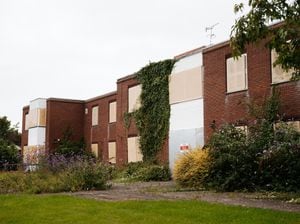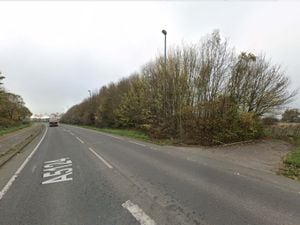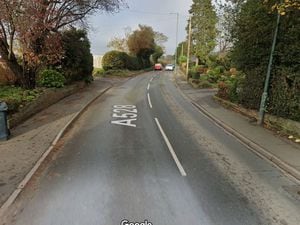Controversial Shrewsbury homeless accommodation plan set for approval
Plans to turn a former Shrewsbury care home into supported housing for homeless people look set to be approved despite anti-social behaviour fears.

Shropshire Council’s proposals for Coton Hill House in Berwick Road have been met with 270 objections, with residents saying they would not feel safe in their community if the scheme goes ahead.
But planning officers have now said the application should be approved, allowing the conversion of the vacant building into a 25 self-contained flats.
The final decision rests with the council’s northern planning committee, which will vote on the proposals at a meeting next week – and members have been told not to attribute “any significant weight” to the community’s anti-social behaviour concerns, which officers say are “not substantiated”.
In a report to councillors, case officer Jane Raymond says the council previously used the site to accommodate homeless people between March 2021 and June 2023 without obtaining planning permission for the change of use.
But the authority says the new scheme will differ from this, stressing it is “not proposed to be a hostel or homeless shelter for rough sleepers”.
It will accommodate people who are registered as homeless or at risk of homelessness, providing access support services with the aim of helping them to move on to fully independent living.
The authority says it will in turn help reduce its reliance on costly and unsuitable B&Bs.
The site will be managed by STAR Housing, the council’s arms-length social housing provider, with staff to be on-site around the clock.
Access to the building will be via controlled doors, though six of the apartments will have their own private access doors, and these will be used as a ‘final step down’ for residents preparing to leave the facility.
The council’s affordable housing team has supported the plans, saying: “The consequences of not providing suitable accommodation for the ‘homeless single’ cohort could include the individuals continued accommodation in provision that restricts their necessary support, thereby resulting in the individuals situation remaining the same at best or even getting worse.”
Shrewsbury-based homeless charity The Ark also expressed support, along with 12 members of the public, the report adds.
Shrewsbury Town Council and Councillor Nat Green, who represents Quarry and Coton Hill, said they supported the scheme in principle but said there were gaps in the management plan, and more assurance was needed about how the site would be run in order for the community to feel reassured.
In response, a revised management plan was submitted setting out the staffing and security arrangements, how residents will be selected and house rules.
The planning report says the scheme would help to “address the current shortage of this type of accommodation in Shrewsbury”.
Ms Raymond says: “With regards to the fear of crime and anti-social behaviour in the locality and wider area arising as a result of the proposed new use, although the fear of crime can be a material consideration there also needs to be an evidential basis to that fear.
“Residents have reported an increase in crime and anti-social behaviour during the former period of unregulated use, but this is not supported by evidence and there is no correlation between reported crime levels and occupancy when referring to the crime statistics prior to and during this period.
“The community fears are based on their experience when it was occupied unlawfully for a very different kind of use, and their assumptions regarding future residents.
“The proposed use and management of the scheme now proposed is not the same as when it was previously occupied as a homeless shelter or hostel when there was no planning permission in place and therefore no conditions to control the proposed occupation and management.
“Having regard to the assessment and selection criteria for future occupiers that is outlined in the management plan it is considered that the local residents’ assumptions about future residents and their fear regarding an increase in crime and anti-social behaviour due to the proposed use is not substantiated.”





